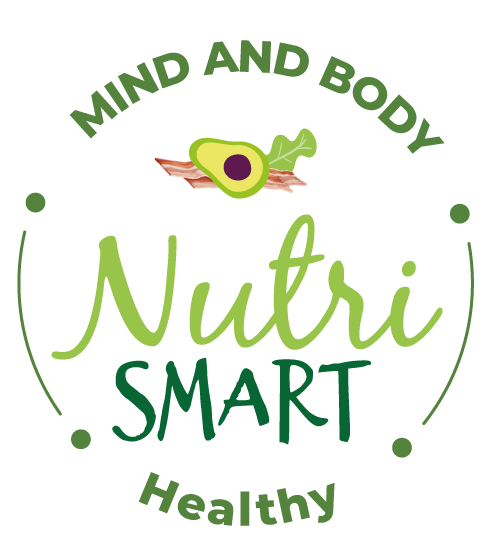
You feel like you’re at the end of your rope at three in the afternoon and you still have half a day ahead of you and you still have to work, exercise, cook, eat… and the list goes on. More and more people, and younger ones, are asking about how to have more energy because they don’t have enough energy. But why does this happen? Why are we so mentally and physically exhausted in an era where, in theory, we should have more comforts than ever?
Evolutionary mismatch: an explanation for modern fatigue
If we use less energy than our ancestors, why do we feel more tired than them? We don’t have to hunt for food or escape predators, but even so, our energy fades before the day is over.
This is due to evolutionary mismatch. Our body and brain evolved over thousands of years for a very different lifestyle than today. Today, we live in small apartments, move around in crowded transport and spend hours in front of screens.
Imagine Carlos, who represents many of us. He gets up, drinks a coffee, gets on the bus and works eight hours in an office doing tasks he is not passionate about. When he leaves, he wants to relax and resorts to unhealthy habits to change his internal state. This environment is not what we are designed for.
Not respecting the “instructions in the manual” of our body has consequences. If we do not move enough, we are more likely to suffer from osteoarthritis in old age. If we consume too much sugar, we increase the risk of diabetes and heart attacks. This imbalance affects not only our body, but also our mind.
Stimulus overload and glutamate
I thought about this explanation about energy during a night dive. When diving at night, I noticed that we consume less oxygen than during the day. Why? Because there are fewer visual stimuli and our brain works less to process information. This means less expenditure of mental energy and, therefore, less oxygen consumption.
In our daily lives, we are constantly bombarded by stimuli: what we see, hear and think. Processing all these stimuli consumes energy, and that energy needs oxygen to be produced. Each stimulus activates our neurons, which use a neurotransmitter called glutamate, the main excitatory neurotransmitter in the brain.
The greater the number of stimuli and decisions, the more glutamate is released in the synapses to facilitate neuronal communication. However, excessive activity can overload the mechanisms that eliminate or recycle this neurotransmitter, generating an imbalance. The accumulation of glutamate in the synaptic space can hinder the efficient activation of neurons.
This explains why we feel more mentally tired and why making decisions becomes more difficult as the day progresses. In addition, this fatigue drives us to resort to automatic habits, which are often not the healthiest.
The vicious circle of decisions and fatigue
Every day, we make around 30,000 decisions. From choosing what clothes to wear to deciding whether or not to reply to a text message. This volume of decisions is not something we are evolutionarily prepared for. Our ancestors made decisions, yes, but in a much less complex context and with fewer options available.
Daniel Kahneman, Nobel Prize winner in Economics in 2002 for his work on the psychology of judgment and decision making, introduced the concept of ego depletion or “decision fatigue.” This phenomenon describes how the quality of our decisions decreases after a long period of decision making. That is, the more decisions we make, the harder it is for us to continue making the right choices.
This mental exhaustion not only affects our decision-making ability, but also consumes physical energy. That is why at the end of the day we are more likely to avoid activities that require mental or physical effort.
The caffeine and adenosine trap
When we’re tired, we often turn to coffee or mate for an energy boost. Caffeine doesn’t create energy, though; it simply masks the feeling of fatigue by blocking the receptors for a substance called adenosine, which builds up in the brain and induces sleep.
By hiding adenosine, caffeine tricks us into thinking we’re not tired. But when it wears off, all that pent-up adenosine hits us all at once, making us feel even more exhausted. This may explain why, after a few hours of drinking coffee, we feel more tired than before.
A study published in the Journal of Clinical Sleep Medicine found that consuming caffeine even six hours before bed can significantly affect sleep quality. This creates a cycle where we need more caffeine to make up for the lack of energy, which in turn affects our sleep and makes us feel more tired the next day.
Strategies to recover your energy
Reducing the buildup of glutamate and adenosine is key to improving our energy levels. Here are some strategies that can help:
1. Simplify your decisions
Every decision, no matter how small, consumes energy. Automating tasks and reducing the number of daily decisions can be very beneficial. For example, you can plan your weekly meals with healthy recipes that you like, avoiding having to decide what to eat each day. You can also simplify your wardrobe so you don’t waste energy choosing what to wear.
Former President Barack Obama mentioned that he always wore gray or blue suits to reduce the number of decisions he had to make and thus save his mental energy for more important matters.
2. Reduce unnecessary stimuli
We are constantly exposed to stimuli that demand our attention and consume energy. Reducing the use of electronic devices, especially before bed, can help reduce stimulus overload. Consider establishing technology-free times of the day or limiting the use of apps that generate more distractions.
One technique I often recommend is to turn your phone to black and white to reduce its visual appeal. This can reduce the time we spend looking at the screen and, therefore, reduce mental energy consumption.
3. Improve your sleep quality
Sleep is essential for eliminating the buildup of glutamate and adenosine in the brain. Poor sleep quality prevents these metabolites from being eliminated properly, causing you to start the day at a disadvantage.
Try to establish a regular sleep routine, respecting your circadian cycle. Although there are different chronotypes (morning people or night people), the time difference is not as wide as you think. Sleeping the hours your body needs is essential to maintain optimal energy levels.
A study conducted by the National Sleep Foundation in the United States revealed that sleeping less than seven hours a night can affect cognitive ability and physical performance, increasing the feeling of fatigue during the day.
4. Practice dopamine fasting
Dopamine fasting involves minimizing stimuli that generate instant gratification, such as social media, junk food, or television. By doing so, we re-sensitize our reward system, which can increase our energy levels and improve our mood.
Dedicating one day a week to this practice can be very beneficial. During that day, avoid using electronic devices, do not consume digital content, and focus on simple activities such as reading, walking, or meditating.
5. Increase your physical activity
Although it may seem counterintuitive, physical exercise can increase your energy levels. Activities such as high-intensity interval training (HIIT) can increase the production of neurotransmitters such as adrenaline and noradrenaline, which improve feelings of energy and alertness.
Norwegian physiologist Ulrik Wisløff has extensively researched the benefits of HIIT on cardiovascular and metabolic health. Incorporating short bouts of intense exercise can have a positive impact on your daily energy.
6. Consider additional supplements and practices
While diet and lifestyle are key, in some cases certain supplements can help improve the efficiency of our “energy factories,” the mitochondria. Substances like arginine or practices like exposure to near-infrared light can boost the production of ATP, our body’s energy molecule.
Dr. Otto Heinrich Warburg, winner of the Nobel Prize in Medicine in 1931, researched the energy metabolism of cells and highlighted the importance of mitochondria in energy production. Improving mitochondrial function can be key to increasing our energy levels.
Additionally, in some cases, supplements like vitamin D or B vitamins can be helpful, especially if there are proven deficiencies.
7. Stay properly hydrated
Dehydration significantly affects our energy levels. Even a loss of just 1% of body water can decrease physical and mental performance. Make sure you drink enough water throughout the day and pay attention to signs of thirst or fatigue.
8. Manage stress
Chronic stress consumes a lot of energy. Techniques such as meditation, mindfulness or simply taking a few minutes a day to relax can help reduce levels of cortisol, the stress hormone, and improve feelings of well-being.
Neurologist Herbert Benson of Harvard University studied the effect of the relaxation response on the body and found that meditative practices can slow metabolism and reduce stress, helping to conserve energy.
9. Mindful eating
A balanced diet is essential to maintaining optimal energy levels. Nutrient-rich foods such as fruits, vegetables, whole grains and protein provide sustained energy. Avoid refined sugars and processed foods that can cause sharp spikes and drops in energy levels.
Dr. Ancel Keys, known for the Seven Countries Study, demonstrated the importance of the Mediterranean diet on cardiovascular health and energy levels. Incorporating elements of this diet can be beneficial.
10. Connect with nature
Spending time outdoors can revitalize you. Ecotherapy or nature therapy has shown benefits in reducing stress and increasing energy. Even a short walk in a park can have positive effects.
American philosopher Henry David Thoreau highlighted the importance of nature to human well-being in his work “Walden.” Connecting with the natural environment can be a simple way to recharge.
11. Positive mindset
The attitude with which we face everyday life influences our energy levels. A positive mindset reduces stress and can improve the production of neurotransmitters that promote well-being and vitality.
Additionally, mental health and energy are closely linked. Conditions such as depression and anxiety can significantly decrease energy levels. If you feel that these factors may be affecting you, it is important to seek support and consider speaking to a professional.

Very useful this information.
Commenter avatars come from Gravatar.